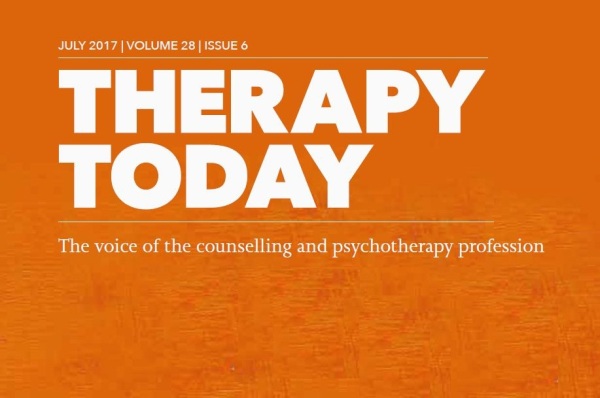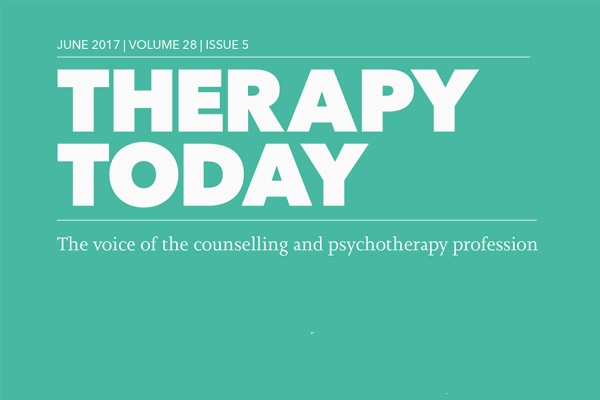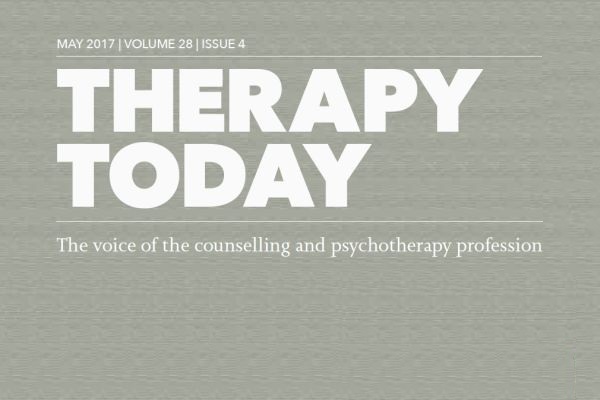‘I’ve been on pills for depression and anxiety for five years. They don’t seem to make any difference, but I’m worried I’ll feel even worse if I come off them.’ It’s an all too familiar and frustrating refrain from clients, to which therapists can say little other than, ‘Have you discussed this with your GP?’
In my private practice, the unmedicated client is becoming a rarity. Nationwide, prescriptions for antidepressants are at an all-time high, up by 100% since 2015, and 500% since 1992. Prescriptions for antipsychotics have also increased by over three million since 1998,¹ and there are 297,000 long-term users of benzodiazepines, such as diazepam (Valium), lorazepam (Ativan), temazepam and nitrazepam, and other so-called z-drugs, such as zopiclone and zolpidem, in the UK.² Clients not infrequently ask if they should start taking antidepressants, and there is no simple answer: research and personal testimony tell us they work for some, but not all – and so do talking treatments and placebo³ – but cannot tell us why.
But what about clients who are taking them, and don’t find them helpful? Are we becoming a prescribed drug-dependent society?
‘You could say we are in the midst of a psychiatric drug epidemic,’ says Dr James Davies, psychotherapist and reader in social anthropology and mental health at the University of Roehampton, and editor of The Sedated Society (Palgrave Macmillan, 2017), on prescribed drug dependency. ‘Over 15% of the adult population in the UK is psychiatrically medicated at any one time, and that figure is going up.’
The Royal College of Psychiatrists has one explanation. In a press release issued in response to the recent BBC Panorama programme on the fatal consequences of antidepressants, A Prescription for Murder, it said: ‘We know that more of the people living with mental illness now seek medical advice and we believe this explains the increase in the number of people being prescribed antidepressants.’ An alternative view is that it’s a consequence of overstretched mental health services, and doctors who feel they have nothing else to offer patients. Research by the Mental Health Foundation found that 78% of GPs had prescribed an antidepressant when they thought an alternative approach might be more appropriate, and 66% of these had prescribed the drug because they thought there wasn’t a suitable alternative.4 It’s estimated that a third of people in the UK taking antidepressants long-term have no clinical reason to continue them, and could try stopping treatment.5
What can counsellors and psychotherapists do to help clients who feel their medication isn’t working, or that it comes with too many side effects?
The danger of repeats
‘UK studies show half the people on antidepressants have been taking them for two years or more, echoing similar findings in the USA,’ says Tony Kendrick, Professor of Primary Care at Southampton University.6 ‘Unfortunately, reviews of patients taking antidepressants have been found to decline in frequency with longer use, reducing the opportunity to reassess the appropriateness of treatment and increasing the likelihood of continuing it unnecessarily. Patients may be on repeat prescriptions, reviewed only infrequently, and just assume they are expected to continue treatment.’
It’s a similar story with benzodiazepines, frequently prescribed for anxiety-related conditions: patients are left long-term on drugs that were only ever intended for short-term use, says Debra Fielding, counsellor and specialist benzodiazepine support worker at the Bridge project, a Bradford-based drug- recovery service. ‘If you went to the doctor with flu and you were put on antibiotics, you wouldn’t expect to be still on them in 30 years’ time. But a lot of our clients were first put on a drug like lorazepam in the ‘60s and ‘70s. One client was given it after a bereavement as a teenager, and she was still on it when she came to us for help 47 years later. Another had taken it for 37 years, having been put on it for post-natal depression.
‘These are powerful drugs and there are consequences to taking them long-term,’ Fielding says. It’s thought that 10–15% of long-term users of benzodiazepines develop a protracted withdrawal syndrome,7 or suffer from tinnitus and other neurological and psychological symptoms, as a result of neuronal damage.
The problem, not the solution?
An increasing body of evidence and expert opinion suggests that, in many cases, long-term use of psychiatric drugs not only exacerbates existing mental health conditions but may also trigger new ones. The results from a 20-year study published in 2014 showed that, at each follow-up assessment, people who had taken antipsychotics were significantly more likely to display psychotic symptoms than those who had never taken medication.8 ‘Research studies reveal that antidepressants increase the risk that depression will run a chronic course: a unipolar patient will convert to bipolar disorder; a patient will become impaired and go on government disability,’ writes US science writer Robert Whitaker in The Sedated Society.9 He points out that the number of people claiming disability benefits in the UK because of mental illness increased from 721,000 in 1998 to 1,081,000 in 2010:10 ‘... most of this increase is due to people becoming disabled by depression and anxiety, as opposed to psychotic disorders. The rise in these affective disorders correlates with a rise in the prescribing of antidepressants, which would be expected if these agents worsen long-term outcomes.’
Research by Irving Kirsch, lecturer in medicine at Harvard Medical School, whose influential 2008 paper found that antidepressants were no more effective than placebos,11 suggests these drugs ‘may induce a biological vulnerability, making people more likely to become depressed in the future’.12
Young people are particularly at risk of an adverse reaction to antidepressants, according to a Nordic Cochrane Centre review, which found that antidepressants double the risk of suicide and aggression in under-18s.13 ‘There are probably up to an extra 2,500 suicides in Europe triggered by an SSRI antidepressant,’ says David Healy, Professor of Psychiatry at Bangor University, who founded RxISK.org, a website about prescription drug risks. He successfully campaigned to get warnings printed on antidepressant labelling to highlight the increased risk of suicide for young people, and has recently called for this to be extended to adults. Coroners’ reports have implicated antidepressants in 4,800 deaths in England and Wales since 2003.14
Coping with withdrawal
James Davies recently researched how many people in England are taking benzodiazepines long-term (for a year or longer).15 ‘A quarter of a million people are on these medications long-term, which is shocking statistic, given that the neurological and physiological effects they have are devastating,’ he says. ‘When psychiatric drugs are used responsibly, and they are prescribed responsibly, people will avoid negative effects, but people are not being prescribed them responsibly.’
Part of the reason people get trapped on long-term use of benzodiazepines is the lack of support for those who want to come off the drugs, says Debra Fielding. ‘A lot of people think that, once on these drugs, you can never get off them. It is important for people to know that, with the correct advice and support, all of these symptoms can be avoided if a sensible reduction plan is followed. We get SOS calls and emails every day from people who have come off benzos, or a cocktail of benzos, antidepressants and painkillers, sometimes cold turkey, because they have been given the wrong advice by a medical professional. They have been passed between the medical and mental health services; no one understands or accepts that what is happening to them is related to coming off the medication. They come to us with aching limbs, painful fingers and toes, depersonalisation, a feeling like their head is being crushed. It can go on for up to two years, or even longer in severe cases. It’s well known among street-users that coming off benzos is worse than coming off heroin, if done cold turkey.’
The Bridge project helps clients detox in the community. ‘We encourage natural remedies such as Epsom salt baths for aching muscles and aiding sleep, gentle walking, eating a healthy diet, and lots of liquid. Mostly, people want to hear that they are not going mad, that it is benzo withdrawal, and that they are not on their own,’ she says.
What’s less well known is that people can also suffer severe withdrawal symptoms when they come off antidepressants. Two-thirds of antidepressant users experience withdrawal when they try to stop the drugs, one study has found.16 In another, 74% suffered withdrawal effects, including insomnia, agitation and mood changes after coming off antidepressants.17
It’s at this point that clients may go back on medication out of desperation, or on the advice of a doctor who mistakes withdrawal symptoms for the original problem coming back. ‘My doctor told me that what I was experiencing was a return of my original symptoms, but I didn’t agree,’ says James Moore, a former civil servant, who suffered withdrawal symptoms when attempting to come off the antidepressant mirtazapine. Moore was originally prescribed the drug when he was having a difficult time at work. But, even after leaving his job, he still struggled with depression. After two years, he asked his doctor about coming off the antidepressant. ‘The advice was, “Just take half a tablet a day for a week and then stop completely.” I immediately suffered with side effects – insomnia, panic attacks, restlessness, agitation, blinding headaches, nausea and dizziness, but my doctor told me that, rather than withdrawal, it was a return of my original symptoms. It’s so easy for medical professionals to say, “Look, it’s obvious you need the drugs.”’
Moore was finally prescribed a liquid form of the drug to help him cut down on the dose and withdraw with the least possible symptoms. He is now campaigning for drug companies to provide tapering kits in graded doses for people who wish to come off their medication (see www.jfmoore.co.uk for more information about the campaign).
What can therapists do?
The All-Party Parliamentary Group for Prescribed Drug Dependence (APPG) (prescribeddrug.org) is putting together guidance for therapists working with clients affected by prescribed psychiatric drugs. ‘It’s in the early stages, but we are working with BACP, UKCP, BPS and the National Survivor User Network (NSUN) to develop guidance for psychological therapists working with people on psychiatric drugs,’ says co-ordinator Dr Anne Guy. ‘A lot of therapists are having conversations about medication with clients, but there are likely to be gaps in understanding, as it may be some time since they completed their original training, or their training may not have included the effects of medication. It’s about providing the latest evidence in a usable and understandable way: what benefits the drugs might have, but also what is the impact on therapy, how does it enter the room, and also what does withdrawal look like, how does that impact on therapy, and how might you recognise the difference between the difficulties for which the drugs may have been prescribed in the first place, and withdrawal effects?’
The APPG, along with the BMA, is also lobbying for a 24-hour national helpline to support people coming off prescription drugs. ‘There are few dedicated resources to support people going through withdrawal at the moment. Some information does exist but it is very piecemeal and there are gaps,’ says Guy. ‘We would also like to see a website with relevant information, which could include a list of therapists who may be able to help those withdrawing.’
But, until then, how do we respond, safely and ethically, to clients who want to talk about the effectiveness of their medication, or any side effects they are experiencing, or whether or not they should come off it? ‘I often hear colleagues say, “Well, I am not a doctor, I can’t talk about this”,’ says Guy. ‘I think therapists tend to be cautious, and we can be worried about being seen as an expert on these drugs. But many of them also think, “If I don’t have these conversations, then who will?” And when we start to be aware of evidence that shows the potential long-term damage that these drugs can cause, does that ethical line shift quite substantially? It’s about empowering therapists to think about this and make, perhaps, some different choices, of course within the overall frame of therapy.’
Surviving antidepressants
Therapists may feel they lack the clinical expertise to help clients through withdrawal, but they should not under-estimate the value of psychological support, says James Moore.
‘Therapists can provide the understanding and support you cannot get from doctors. A client and therapist together can make a plan, one that isn’t prescriptive but sets broad targets and considers what action to take if things get very difficult. Therapists can encourage clients to make small, simple changes that will help and give a focus during withdrawal, like improving diet, getting more exercise, keeping up social contact and getting family support. Trying to do a little bit of each while you withdraw can make a big difference, because it can easily become a lonely and isolating experience. The plan can then form the basis of an ongoing arrangement where the client can report back on progress, achievements can be celebrated, and difficulties discussed. I think therapists can also share experiences with one another, so we are not reinventing the wheel all the time. They might like to also inform themselves of sources of support for clients – there are very few official sources, but, in that vacuum, some excellent user communities have grown.’
For a basic survival guide, he suggests:
- survivingantidepressants.org – ‘It's an incredible collection of knowledge, wisdom and experience.’
- The Harm Reduction Guide to Coming off Psychiatric Drugs – a free ebook by Will Hall, available from willhall.net
- Let’s Talk Withdrawal – a weekly podcast where experts and people with first-hand experience talk about antidepressant treatments and withdrawal
Sally Brown is a counsellor and coach in private practice therapythatworks.co.uk, a freelance journalist, and Executive Specialist for Communication for BACP Coaching.
More from Therapy Today

Not so, NICE!
Free article: NICE may again be questioning the effectiveness of counselling. Catherine Jackson reports. Therapy Today, July 2017

How we live now
Open article: Sally Brown highlights some of the main ways in which the digital revolution is influencing all our lives, and what clients bring to counselling. Therapy Today, June 2017

Tap and talk
Free article: Sally Brown asks if counselling is reaping the whirlwind of the digital revolution. Therapy Today, May 2017
References
1. Council for Evidence-based Psychiatry. Briefing note: APPG for Prescribed Drug Dependence. [Online.] 29 June 2015. http://prescribeddrug.org/wp-content/uploads/2015/10/Briefing-note-for-APPG-PDD.pdf
2. Davies J, Rae TC, Montagu L. First indications for long-term benzodiazepine and z-drugs use in the United Kingdom. bioRxiv 2016; 2 November. doi.org/10.1101/085183
3. Cuijpers P, Sijbrandij M, Koole SL et al. The efficacy of psychotherapy and pharmacotherapy in treating depressive and anxiety disorders: a meta-analysis of direct comparisons. World Psychiatry 2013; 12(2): 137–148.
4. Mental Health Foundation. Up and running? Exercise therapy and the treatment of mild or moderate depression in primary care. London: Mental Health Foundation; 2005.
5. Cruickshank G, MacGillivray S, Bruce D et al. Cross-sectional survey of patients in receipt of long-term repeat prescriptions for antidepressant drugs in primary care. Mental Health in Family Medicine 2008; 5: 105–109.
6. Kendrick T. Editorial. Long-term antidepressant treatment: time for a review? Prescriber 2015; 26(19): 7–10. doi: 10.1002/psb.1389
7. Ashton H. Protracted withdrawal syndromes from benzodiazepines. Journal of Substance Abuse Treatment 1991; 8(1–2): 19–28.
8. Harrow M, Jobe TH, Faull RN. Does treatment of schizophrenia with antipsychotic medications eliminate or reduce psychosis? A 20-year multi-follow-up study. Psychological Medicine 2014; 44(14): 3007-3016.
9. Whitaker R. Psychiatry under the influence. In: Davies J (ed). The sedated society. London: Palgrave MacMillan; 2017 (pp163–188).
10. Viola S, Moncrieff J. Claims for sickness and disability benefits owing to mental disorders in the UK: trends from 1995 to 2014. British Journal of Psychiatry Open 2016; 2(1): 18-24.
11. Kirsch I, Deacon BJ, Huedo-Medina TB et al. Initial severity and antidepressant benefits: a meta-analysis of data submitted to the Food and Drug Administration. PLoS Medicine 2008; 5: e45. https://doi.org/10.1371/journal.pmed.0050045
12. Kirsch I. Antidepressants and the placebo effect. Zeischrift fur Psychologie 2014; 222(3): 128–134. doi: 10.1027/2151-2604/a000176
13. Sharma T, Schow Guski L, Freund N et al. Suicidality and aggression during antidepressant treatment: systematic review and meta-analyses based on clinical study reports. BMJ 2016; 352: i65.
14. See http://antidepaware.co.uk/
15. Davies J, Rae TC, Montagu L. Long-term benzodiazepine and z-drugs use in the UK: a survey of general practice. Epub ahead of print. British Journal of General Practice 2017; bjgp17X691865.
16. Royal College of Psychiatrists. Coming off antidepressants. Fact sheet. London: RCPsych; undated. bit.ly/2t4S4QH
7. Cartwright C, Gibson K, Read J et al. Long-term antidepressant use: patient perspectives of benefits and adverse effects. Patient Preference and Adherence 2016; 10: 1401–1407.
